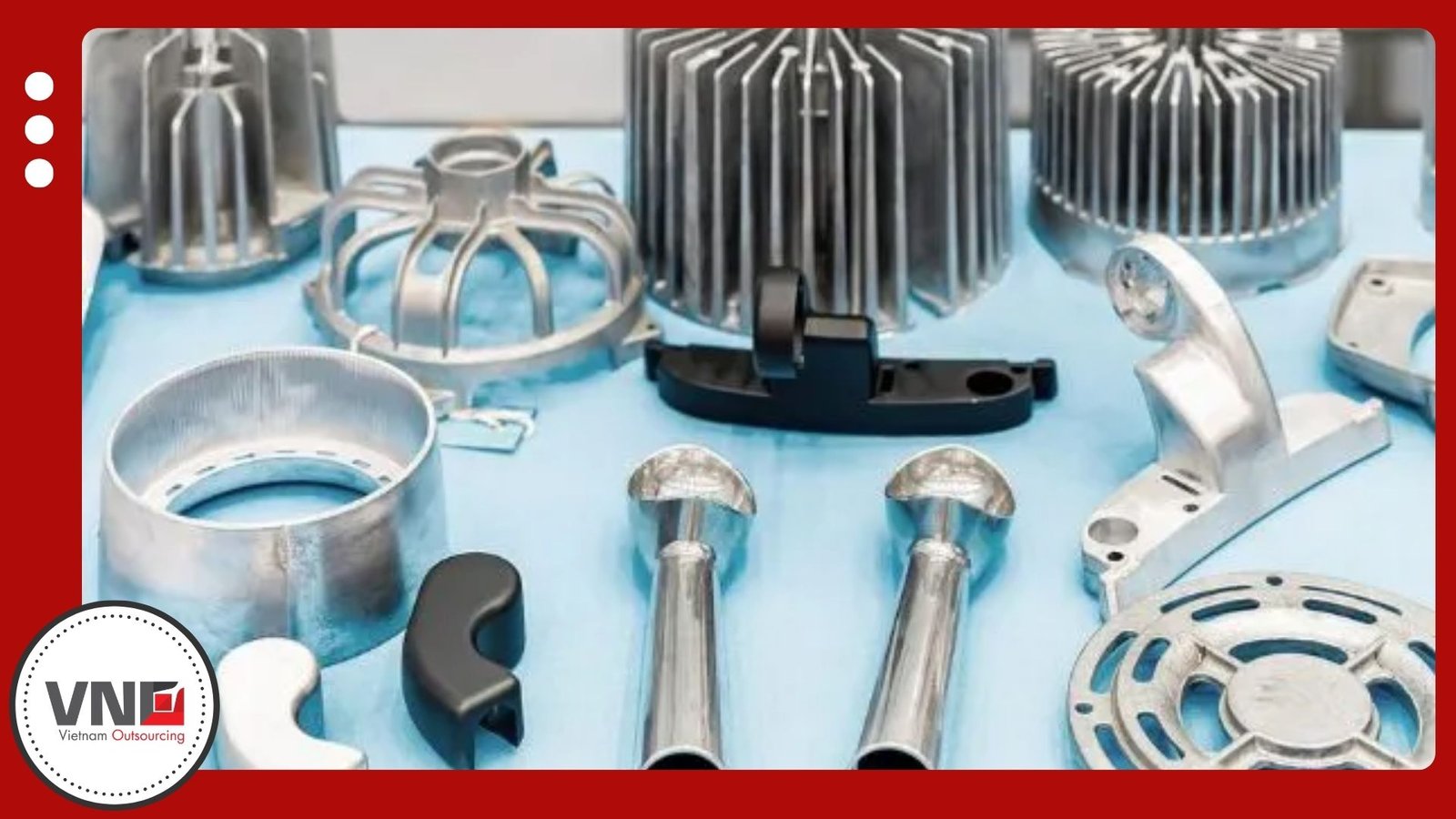Aluminum product in Vietnam is now a major driver of industrial growth and export. Because aluminum is light, strong, and recyclable, it supports industries such as construction, transportation, electronics, energy, and defense. As global buyers demand sustainable and cost-friendly options, Vietnam provides a reliable source for aluminum solutions.
To begin with, aluminum extrusions play an essential role in construction and industrial projects. Manufacturers in Vietnam produce doors, windows, curtain walls, solar panel frames, and heat sinks. They also offer finishes like anodizing, powder coating, and wood grain, which improve both durability and design.
Vietnamese factories supply cast aluminum parts for cars, motorcycles, aerospace, and electronics. They use high-pressure die casting machines to deliver complex and precise parts. For example, companies in Vietnam ship engine housings and gearbox covers directly to Japan and Europe.
Vietnamese producers roll sheets and coils for roofing, packaging, appliances, and signage. Many of them also sell color-coated coils across ASEAN countries for regional construction projects.
Local manufacturers make ladders, scaffolding, furniture, and kitchenware. Exporters ship products such as foldable aluminum ladders to the U.S. and Europe under private brands.
Aluminum frames are lightweight, rust-resistant, and cost-effective. Vietnamese producers supply frames for bicycles, solar panels, modular structures, and office furniture. Demand for solar frames is growing quickly, especially in renewable energy markets.
In addition, factories in Vietnam produce aluminum components for telecommunication towers, antennas, and electronic housings. Because aluminum conducts heat well, it supports 5G equipment and cooling systems. This sector is expanding as telecom networks continue to grow.
Finally, Vietnam also manufactures military-grade packaging. These products protect weapons, ammunition, and sensitive equipment during transport. With their strong resistance to corrosion and shock, they meet strict defense requirements.

First, Vietnam offers cost efficiency compared to China and India. Second, factories follow ISO, ASTM, and RoHS standards, which makes products acceptable in U.S. and EU markets. Third, suppliers can handle both large-scale production and customized orders, giving buyers flexibility. Finally, more companies are investing in aluminum recycling, which supports green production.
At Vietnam Outsourcing (VNO), we connect U.S. and EU buyers with trusted suppliers of aluminum product in Vietnam. Our team checks compliance, controls quality, and manages logistics. As a result, clients save time and reduce risks while sourcing extrusions, die-cast parts, frames, telecom components, and military packaging.
Looking ahead, aluminum product in Vietnam will continue to expand across industries.
Therefore, Vietnam stands out as a resilient “China+1” option. With competitive pricing, strong compliance, and modern technology, it is ready to meet global demand. For deep insight of Vietnamese market, you might want to read aluminum manufacturing in Vietnam